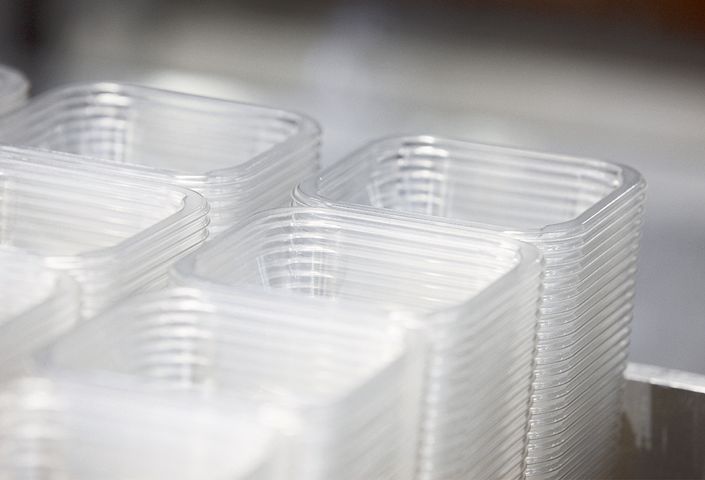Færch Plast Wins CSR Award
Færch Plast has been awarded a prize for best CSR reporting among Danish SME’s from the trade body Danish Accountants. The award is recognition of Færch Plast’s leading role in promoting business driven sustainability in the packaging industry.

The CSR report for 2013 was the first standalone report produced by Færch Plast and the jury especially praised its clarity and structure, Færch Plast’s five concrete and strategic CSR focus areas and it also said the report would be an inspiration to others.
“We have done green accounting for many years, CSR and sustainability have always been high on the agenda and working with a material such as plastic creates a special responsibility. Some aspects do not, however, fit naturally into our financial reporting so it was time to give these issues a specific focus,” says Lars Gade Hansen, CEO of Færch Plast.
Færch Plast was founded in 1969 and is today Europe’s leading producer of plastic packaging for direct food contact. Færch Plast supplies leading players in the European food industry with trays and containers for ready meals, fresh meat, cold food and snacks.
One big issue in the industry is recyclable PET plastic used to produce some of Færch Plast’s major products such as food trays for microwave or conventional oven heat ready meals. The steady increase in recyclable raw material being used is driven by Færch Plast’s own desire to reduce the CO2 footprint as well as that of key customers such as large retail chains.
“We are definitely leading when it comes to using recyclable material. Today, around 75% of our raw materials are recycled PET bottles. The practical limit, for purposes of coloring and other things, is not much higher so we are near the limit of how much recycled material we can use,” says Jesper Emil Jensen, Senior Manager Group Commercial Affairs at Færch Plast.
In 2014, Færch Plast used around 22,000 tons of recycled PET bottles which is more than double the amount returned in Denmark alone. Færch Plast delivers around 2.4 billion trays and containers per year.
“Keeping the current level of recycled materials while continuing to expand the possibilities of sourcing upstream and reducing the food waste are probably the two areas where we can contribute the most in the coming years,” says Lars Gade Hansen.
Apart from striving to further increase the use of recyclable PET bottles, Færch Plast is also involved in a pilot project in the UK to increase the recycling of their own trays and containers. Together with major UK retail players such as Marks & Spencer and Sainsbury, Færch Plast is running a trial with the future ambition to introduce their packaging to the recycling system, and initially to prove that the products Færch Plast puts into the market are recyclable and live up to the cradle-to-cradle principle. So far, the color of the containers have been a problem since it has been difficult to detect black trays by the automatic scanners which sort waste into recyclable, incineration and landfill. Some changes in the black pigment and composition of the material make Færch Plast’s containers detectable with the current sorting technology. Færch Plast is the front runner in this area.
“We will have the results of this trial soon and the potential is huge. If we can solve this, around one billion containers in the UK alone could be recycled instead of being put in landfills,” continues Lars Gade Hansen.
When it comes to food waste, one important step is the introduction of a new active absorbent for fresh meat products (the mat underneath the product to absorb any excess meat juice).
“We, together with partners, have developed a new generation of meat juice absorbers with the potential of prolonging the shelf-life of meat by several days. That would mean a serious reduction in the amount of food being thrown away,” says Jesper Emil Jensen, Senior Manager Group Commercial Affairs at Færch Plast.
Færch Plast sees an important role to play in reducing the amount of food-stuffs being destroyed during transport and storage by developing new and innovative packaging.
“Around 30% of all food sold in European retailers end up as waste. If we can help to reduce that by just a little that would have a tremendous impact,” concludes Lars Gade Hansen.
Færch Plast was acquired by the EQT VI fund in February 2014.